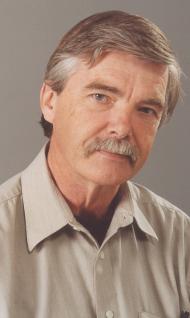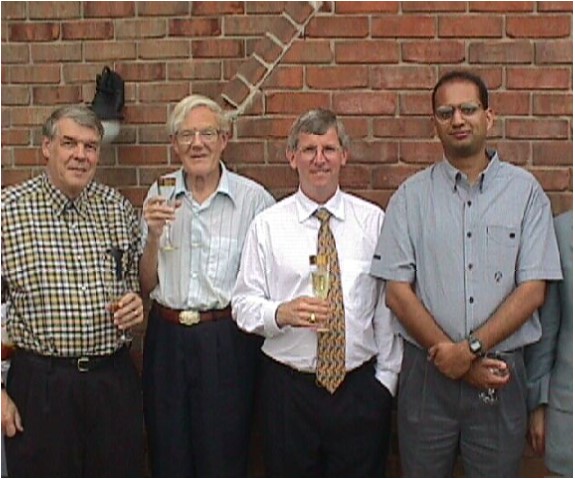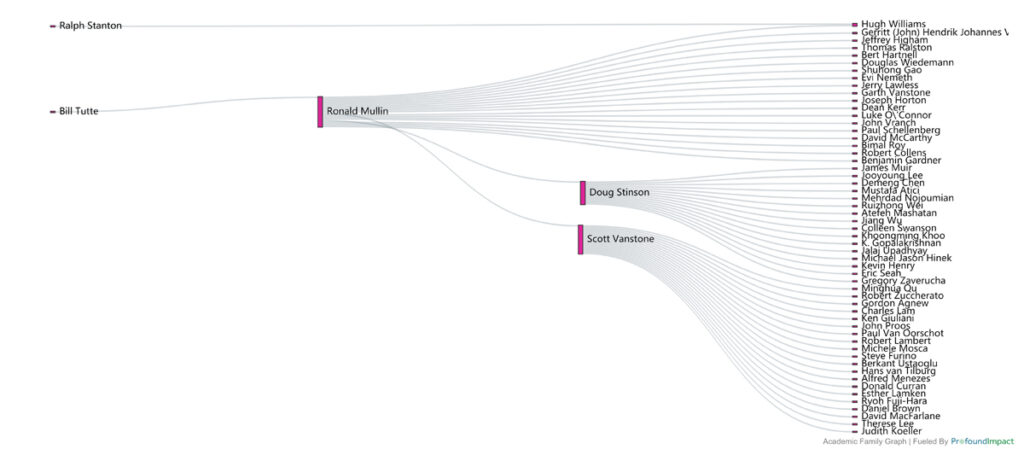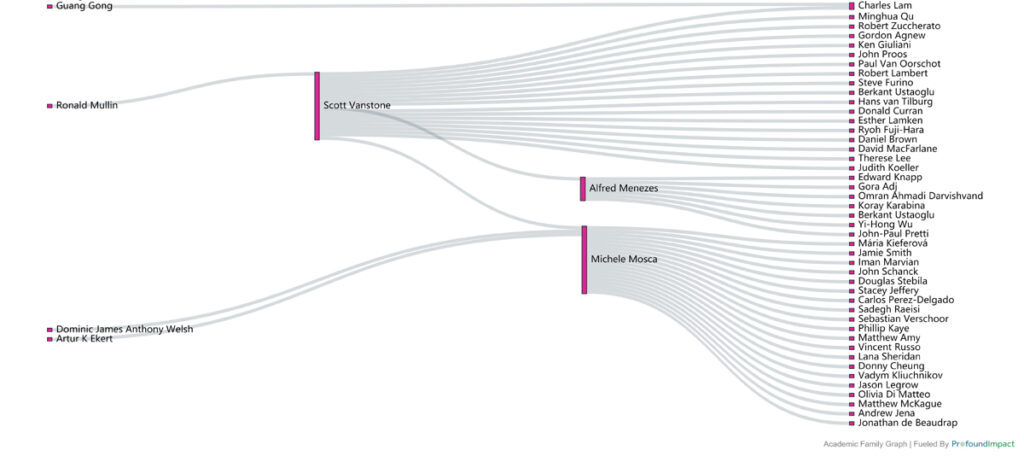News Release – Vanstones inducted into KW Entrepreneur Hall of Fame

Dr. Sherry Shannon-Vanstone and Dr. Scott Vanstone Inducted into Kitchener-Waterloo Entrepreneur Hall of Fame
Celebrating the Legacy of Dr. Sherry Shannon-Vanstone and Dr. Scott Vanstone in Innovation and Community Leadership
WATERLOO, ON | JUNE 13, 2024 — Profound Impact™ Corporation (“Profound Impact”), a technology company that has developed an AI-powered researcher-to-funding matching platform, is proud to announce the induction of its Founder and CEO, Dr. Sherry Shannon-Vanstone, along with her late husband, Dr. Scott Vanstone, into the Kitchener-Waterloo Entrepreneur Hall of Fame. This prestigious honour, awarded by the Waterloo Region Entrepreneur Hall of Fame in partnership with JA South Western Ontario, recognizes the extraordinary contributions of the Vanstones to entrepreneurship, innovation, and the local community.
Sherry is a visionary leader in business and philanthropy, with a career spanning multiple successful ventures in Silicon Valley and Canada. With a MS in Mathematics from the University of Tennessee, she has held significant positions including Vice President, Sales & Marketing, Certicom Corp., Vice President Electronic Commerce at MasterCard International and CEO of Arcamatrix Corp. Her entrepreneurial spirit led to the founding of TrustPoint Innovation and Profound Impact Corporation. Sherry is also renowned for her mentorship and advocacy for women in STEM fields, playing a key role in initiatives such as the Emmy Noether Circle at Perimeter Institute and the Waterloo Region Chapter of Women in Communications and Technology (WCT-WR).
“Sherry was an amazing connector to the whole [tech] community, keeping our company connected to all the people that needed to believe in the technology we had,” said Phil Deck, former CEO of Certicom. “Sherry’s a cryptographer, so she knew the science but she also knew the personalities involved, and that was key. She was an essential part of Certicom right from the beginning. We built a software stack that could be embedded in other people’s software to do elliptic curve cryptography. It was extremely valuable. It was the most advanced cryptographic toolkit in the world. It’s actually the signing algorithm for Bitcoin today,” he adds.
Scott was a prolific researcher and pioneer in Elliptic Curve Cryptography (ECC), with a profound impact on the field of cryptography during his tenure at the University of Waterloo. He supervised numerous Ph.D. candidates and co-founded Certicom, a leader in ECC technology, which was later acquired by Blackberry. His work with TrustPoint Innovation, acquired by the Robert Bosch Group, further cemented his legacy in cybersecurity and the Internet of Things (IoT). Scott’s journey from Ph.D. student to renowned researcher and company co-founder can be traced back to his early recognition of ECC’s potential in 1985. His career, rooted in the academic lineage of distinguished individuals such as William Tutte and Ron Mullin, led to significant advancements in cryptography. Scott was not only an innovative researcher but also a mentor who inspired and guided future leaders in the field. His contributions continue to influence the development of cryptography and cybersecurity, showcasing a legacy of profound impact through connections and collaborations.
Scott’s daughter Andrea Mclean commented: “I am very proud of him for this special recognition for the Kitchener-Waterloo Region Entrepreneur Hall of Fame, and I think he’s very deserving of that for all the hard work he put in over the years as being a math professor and Certicom and TrustPoint after that. Sherry’s always giving back to the community, supporting the University of Waterloo along with my dad, hosting International Women’s Day events, always wanting to connect people within the region.”
“Being inducted into the Kitchener-Waterloo Entrepreneur Hall of Fame is a deeply meaningful recognition of our lifelong commitment to innovation and community,” said Dr. Shannon-Vanstone. “Scott’s vision and passion for cryptography and information security continues to inspire our work at Profound Impact, and I am honoured to continue our legacy of fostering technological advancement and supporting the next generation of innovators.”
The couple’s contributions have significantly impacted the Kitchener-Waterloo region. Sherry’s leadership in local mentorship programs has empowered over 200 women professionals through WCT-WR Mentoring Circles. Additionally, their philanthropic efforts have supported educational and healthcare initiatives, including the Emmy Noether Council at Perimeter Institute, the University of Waterloo Math Faculty, St. Jerome’s University, the University Health Network and the Milton Hospital capital campaign.
“I think the inevitability of Scott and Sherry co-founding TrustPoint was going to be a legacy for what they were going to create together,” said Dr. Deborah Rosati, Chair of Profound Impact Board and Investor. “Profound Impact was a passion project for Sherry originally. She just leaned in. It started with community impact and as it evolved it became more of we can really create this AI platform to connect researchers with funders.”
Profound Impact’s AI-powered platform, Research Impact, exemplifies the ongoing innovation inspired by Scott and Sherry. The platform facilitates seamless connections between researchers and funding opportunities, streamlining the path to groundbreaking discoveries. “This recognition motivates us to continue driving technological progress and supporting academic and industry researchers globally,” said Sherry.
“To aspiring entrepreneurs in the Kitchener-Waterloo area, I encourage you to pursue your passions relentlessly and leverage the power of community and collaboration. Innovation thrives where diverse minds come together to solve complex problems,” she added.
Dr. Shannon-Vanstone extends her heartfelt gratitude to the mentors, colleagues, and community members who have supported her and Dr. Vanstone throughout their careers. Special thanks to the team at Profound Impact, whose dedication and expertise are vital to advancing their mission.
ABOUT PROFOUND IMPACT™ CORPORATION
Based in the Toronto-Waterloo technology corridor, Profound Impact’s AI-powered platform – Research Impact – helps academic and industry researchers find the perfect funding match. With over $2.5 Trillion in research funding opportunities, 100,000s industry partners and 25 Million researchers globally, finding the optimal grant for academic and industry innovators is often overwhelming and unnecessarily time-consuming. More than just a search engine, Research Impact offers automatic, targeted and timely matching. Profound Impact’s customers include top North American research institutions, universities and industry partners. CEO and Founder Sherry Shannon-Vanstone is a serial technology entrepreneur with an unparalleled track record. She has had five successful start-ups and exits in Silicon Valley and Canada, including two IPOs and acquisitions. To learn more, visit www.profoundimpact.com.
For Profound Impact media inquiries, please contact:
Alex Hebert
Durrell Communications
alexh@durrellcomm.com
media@profoundimpact.com
Connect with Profound Impact:
Facebook: @aprofoundimpact
Instagram: @aprofoundimpact
LinkedIn: Profound Impact Corporation
Twitter: @aprofoundimpact
YouTube: @profoundimpactcorporation



